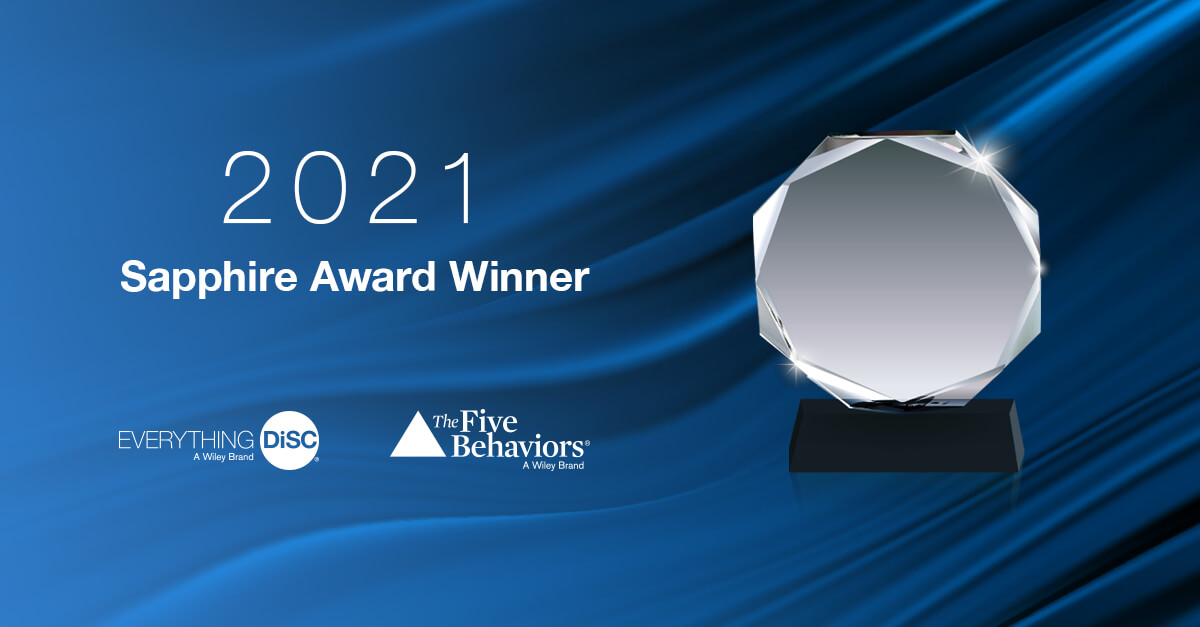
Awards Might Motivate But There Is a Better Way
Looking for ways to motivate your team? You’re not alone! This is one of the most frequently asked questions from managers.
I wish there were an easy answer. Wouldn’t it be great if a particular prize would guarantee performance? Or just a little more money would create renewed energy towards excellence? Or perhaps a trip to Disney would guarantee your team wins the Super Bowl?
Sometimes these incentives do result in the preferred outcome. (Note that three key players from this year’s Super Bowl Champs did indeed go to Disney!) None of the ideas are necessarily wrong, but they probably aren’t going to create sustainable change. Nor were they likely the reason for success in the first place.
Mostly, motivation comes from within. Those football players, and every worker on your team, have their own reasons for the quality and quantity of work they decide to do. That’s why it’s so hard for a manager to have a simple solution that fits all. It doesn’t exist.
Be committed to building relationships, not rewards
But having a sound process and system does work, no matter the industry or position you are working with. (This can even help you understand your own motivation!) When you focus on the relationship, the results will fall into place.
Managers must create an environment where an employee does their best work. But ultimately, it’s up to the individual to perform. So how do you create that environment?
Job fit 101
The first step is making sure the right person is in the right job. That may sound like a no-brainer, but it’s amazing how often a manager will tolerate poor performance because they’re convinced the employee is capable of the work. They may be, but if the person isn’t interested, it will be nearly impossible to find external motivation to switch their gears.
There are myriad ways to identify job-fit, whether it’s using a proven assessment, prompting a discussion about recent performance or demeanor, or encouraging self-reflection on the part of the individual.
I encourage you to explore these avenues fully, especially if your primary question is how to motivate a person, and I’d be happy to share my insights, as well. The ultimate goal is to match the right person with the right role, even if it means getting a little creative.
Work style for the win
Once you have good job fit, the person needs to be managed in a way that best suits their needs and work style. For some people, that is lots of autonomy, for others, plenty of check-ins and direction. To have a completely motivating environment, an individual must experience a trusting relationship that provides productive ways to handle challenges, roadblocks, and successes.
The right recognition
Many managers look to gifts, prizes, or awards to stimulate activity or outcomes. This can sometimes work but usually only short-term and even worse, it can backfire. For instance, if the goal set for some ‘award’ is too difficult to attain, it can shut a person down, leaving them feeling defeated and incompetent.
Sometimes when a person feels pressure to achieve, it actually hinders their abilities. They may become overwhelmed with concern of failure. In either case, you can end up with a serious problem on your hands. That’s why it’s so important to gauge the person to best set expectations.
In my opinion, you and your team will reap much higher outcomes by focusing on the relationship rather than the rewards. That doesn’t mean you don’t recognize achievements, but introducing a shift in when you put incentives into place can make a huge difference.
Instead of luring performance through a promised gift, offer the treat as recognition of a job well done. For example, if your customer service rep just saved a huge account, give her a gift certificate to her favorite restaurant (enough for her to take someone special with her!).
If a rookie sales rep reached an impressive target, print up an awards certificate with a celebratory announcement to the team. You are showing admiration and appreciation for extraordinary work, something that everyone welcomes and will notice.
Know your people
Recognition is always important, but keep in mind that it’s important to do it in a way that aligns with the team member’s work style and personality. (This is where the relationship piece comes in again.) Some folks want public recognition but many don’t. These are some of the many variables to take into account when establishing prizes and awards as a way to motivate.
My own view

We are excited to share that Wiley has awarded PeopleSense Consulting the title of Everything DiSC and The Five Behaviors Sapphire Award Winner for our substantial achievement and commitment to unlocking human potential.
A few weeks ago, Wiley awarded PeopleSense Consulting the Sapphire Award for substantial achievement and commitment to unlocking human potential. It felt wonderful to receive this recognition and we appreciate the acknowledgement—but it’s not the reason that our team works every day to help create healthy workplace relationships. It’s because we love our work, the people we partner with, and the results we see. That keeps us motivated to do more.
It’s the relationships that matter. Our relationship with Wiley, which we treasure, as they provide world class tools and support with integrity. Our relationships with our clients, who we admire for making a commitment to their workforce. And the relationship between our team members, the colleagues that we trust and learn from every day.
Maybe one day we’ll all go to Disney. But for now, let’s continue to unleash our potential together.

